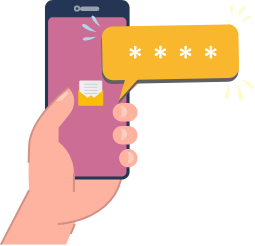
Meta: These study tips and a tutor for online classes are the key to scoring good on your exams. Have a look!
Anytime you decide to fix your studying methods is the right time – you're never too late, and never too early. Excellence in academics depend on how well you study for your exams, and how precisely retain all that information. While most students rely on cramming as much information as they can just a night before the exam, it’s not one of the best methods. Curating a proper studying schedule and employing different hacks can help you study better instead.

In addition, you can also enroll yourself in online tutoring programs and take help from private teachers to achieve your desired grades. If you want to know how to study effectively and put that method to practice, continue reading this blog.
Some Quick Tips
- Don't leave studying until the last minute.
- Create a time table and see which subjects require most of your time.
- Assign days or hours for each subject accordingly.
Now that we’ve unraveled the most basic tips, let's get down to the real thing.
Take Study Breaks
Do not study rigorously. Yes, you heard that right. Our brains are equipped to retain information better if done in intervals instead of getting an info-dump at once. Study for half an hour, or an hour long session, instead of studying for 4 hours straight.
Moreover, if you study something within twenty four hours of learning it, there's a 60% chance of remembering it in the future. Additionally, studying just before sleeping ensures that your brain retains the information better.

See What Time Suits You Better
For some people, daytime studying might do wonders. However, others prefer to study from the comfort of their bed. It could be an empty classroom at school, or your dorm room at night when your roommate's out to run errands, observe what time and which place suits you better.
However, whenever you decide to study, be mindful of your sleeping routine. Pulling all-nighters every other day will only tire your body out and exhaust your brain. Also, don't turn studying into a competition – study at your own pace.
Take a Break and Relax
You may find it hard to believe, but taking short breaks from studying will work in your favor. Don't feel too bad about going for a walk around the block when you should be studying. Studying without breaks will lead to exhaustion – and a tired mind is of no use when you're trying to learn something.
Getting the necessary eight hours of sleep will help you study better the next day, and save you the trouble of cramming information all night long.
Study on a Daily Basis
Studying a chunk of your course everyday ensures that you won't be burdened by it in the end. This will save you from worrying yourself a night before the exam.
Create a study schedule and don't let other distractions stop you from pursuing it. Begin with studying just an hour or two when an academic year commences – increase the hours as the year progresses and the exams approach.
De-clutter Your Study Space
Clutter is counter-productive – and when you're trying to store information in your brain for the approaching exam, it can be disastrous. Before sitting down to study, make sure to organize your study space and ensure that it’s clean.

Ask for Help
Group studies help you understand concepts better. An organized study session with your classmates clarifies all kinds of concepts and helps you revise in time for exams.
Don't hesitate to ask for help from your peers when you feel that you're stuck on a topic. Their explanation might clear all your confusions. Similarly, don't shy away from telling them what you know about the subject. Repeating information out-loud helps your brain retain it better. If you're unable to revise it with friends, explain whatever you understand to an imaginary audience.
No-Distractions Zone
Studying without music is better, as it is bound to distract the listener. But if you can't function without something playing in the background, choose sounds of nature or other soothing sounds to create a rhythmic noise.
Ignoring a notification is difficult – especially when something exciting is happening in a group chat. But you must steel yourself against any type of distraction that is created by your cell-phone. Put it on silent or even on airplane mode until you've studied enough for the day.
Setting a timer also helps, and you can reward yourself with a break the moment it goes off. But if the temptation to check your socials is overwhelming, switching off the device is the only option.

No, Reading is Not the Same as Studying
While reading is an important part of studying, it can never be synonymous to it. Reading remains only a constituent of studying because whatever you read, you can quickly forget. Your eyes skim over words and the brain only registers whatever you're reading on the surface, but doesn’t retain it.
Instead, do the following for active-studying:
- Use the help of diagrams and flowcharts whenever you can.
- Divide studying a subject by topics.
- Take online quizzes related to it.
- Come up with relatable examples.
- Use mnemonics.

Summaries Always Help
While repeating information out loud helps, writing it down in a concise manner is a much better method. You can organize the information in paragraphs or bullet points – whatever works for you.
Using highlighters and different colored gel-pens to write key points not only make your notes pleasant to look at, but also makes them more memorable.
Need Further Help?
If you think you'll benefit from the best online tutoring programs, Bayise Tutor can help you. We are among one of the top 10 online tutoring sites. Not only can we help you succeed in your exams, but we also offer online courses for IT professionals and online copywriting services.
Get in touch with us today!









 facebook
facebook
 Google
Google










